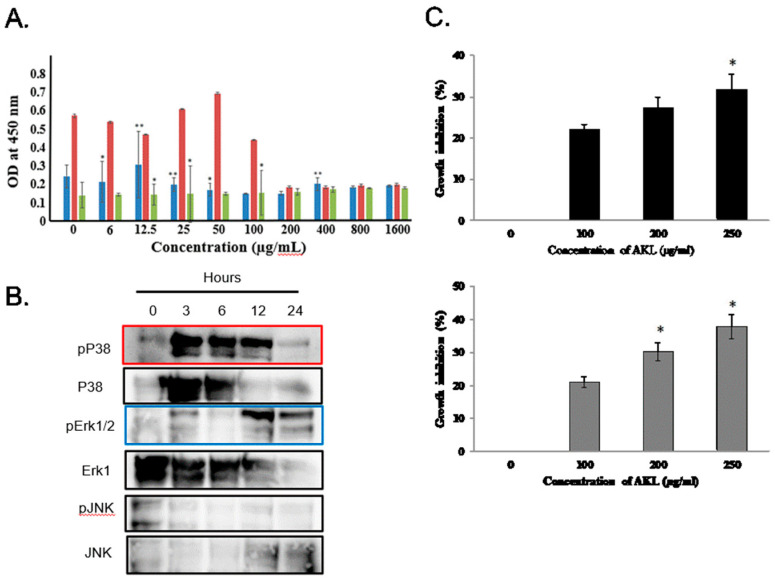Figure 5.
In vitro antiproliferative activity of AKL-40 against different cancer cell lines. (A). Antiproliferative activity of AKL-40 against erythroleukemia (K562), human B-lymphoma (Raji), and rat basophilic leukemia (RBL-1) cells. Orange, blue, and gray bars denote the growth of K562, Raji, and RBL-1 cells, respectively, at different concentrations of AKL-40. Data are expressed in mean ± SD. (B). Activation of MAPK pathway in AKL-40 treated K562 cells was observed during a period of 24 h. Phosphorylation of P38 was observed from a 3 to 12 h treatment and it diminished at 24 h (surrounded in red). Phosphorylation of Erk1/2 was also shown after the treatment for 12 to 24 h (surrounded in blue). No phosphorylation of JNK was observed. (C). Anticancer activity of AKL-40 against EAC and U937 cells. After treating with 100–250 µg/mL of AKL-40, percentages of growth inhibition were determined by MTT assay (n = 3, mean ± SD). Gray and black bars indicate EAC and U937 cells, respectively. The results were statistically significant (* p < 0.05, when lectin-treated cells were compared to untreated cells). The results were statistically significant (** p < 0.01 and * p < 0.05, when lectin-treated cells were compared to untreated cells).

